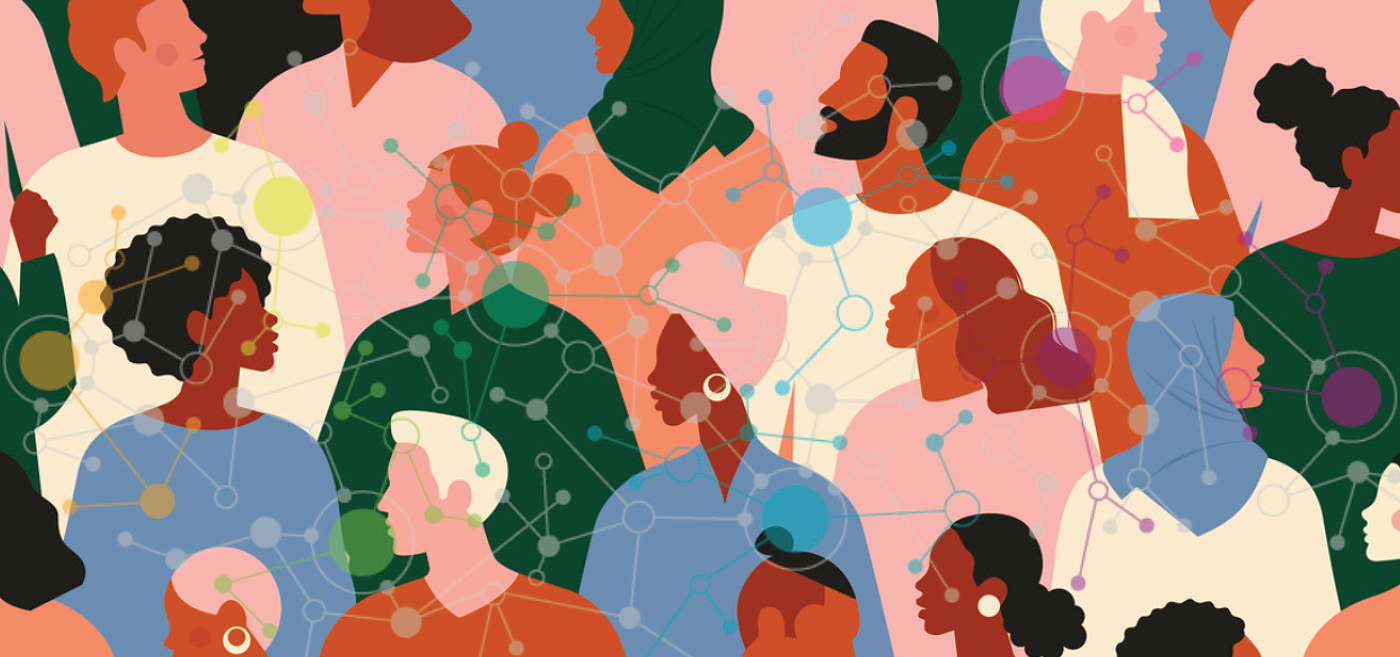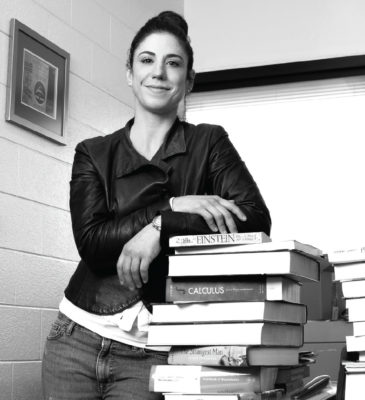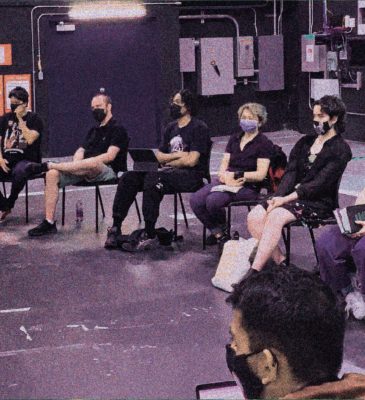York’s organized research units (ORUs) address specific opportunities to advance new knowledge and ideas.

The 30 ORUs foster innovation and interdisciplinary collaboration with other researchers and community partners.
Centre for Artificial Intelligence & Society (CAIS)
CAIS unites researchers who are collectively advancing state of the art theory and practice of artificial intelligence (AI) systems, law, governance and public policy. The research focuses on AI systems that address societal priorities in health care, smart cities and sustainability, and are fair, explainable, reliable and trusted.
Centre for Bee Ecology, Evolution and Conservation
The mission of the BEEc is to foster interdisciplinary, innovative, collaborative and cutting-edge research to be used for the advancement of knowledge and implementation of policy changes to help sustain pollinators globally.
Centre for Feminist Research / Le centre de recherches féministes
The CFR promotes feminist activities and collaborative research at York and works to establish research linkages between York scholars and local, national, international and transnational communities. Feminist research is conceived of in broad terms, as being concerned with issues of women, gender, class, race, sexuality, ability and feminism.
Centre for Indigenous Knowledges and Languages
This ORU supports research involving both traditional and contemporary knowledges, as care-taken, shared and created by Indigenous scholars located in the University and by Indigenous knowledge holders from communities. It aims to facilitate research and knowledge production and dissemination, by Indigenous and non-Indigenous scholars, that re-centres Indigenous knowledges, languages, practices and ways of being.
Centre for Innovation in Computing @ Lassonde
The mandate of this ORU, based in the Lassonde School of Engineering, is to establish itself as a nationally leading and internationally recognized research unit focusing on the science of computing and its realization to enable novel solutions and technologies.
Centre for Integrative and Applied Neuroscience (CIAN)
disease. One in three Canadians will experience a brain-related health disorder. The Centre for Integrative and Applied Neuroscience (CIAN) mobilizes research to address health, education, industry, and other applications important for the global community.
Centre for Refugee Studies
The CRS is an interdisciplinary community of researchers dedicated to advancing the well-being of refugees and others displaced by violence, persecution, human rights abuses and environmental degradation, through innovative research, education and policy engagement.
Centre for Research in Earth and Space Science
CRESS facilitates research activity within the areas of planetary exploration, climate and environment, and space technology.
Centre for Research on Biomolecular Interactions
The CRBI brings together researchers to further understanding of the mechanistic details of how biomolecules interact with one another, the relationship between biomolecular interactions and cellular processes, and how biomolecular interactions can be used to diagnose and treat diseases.
Centre for Research on Language and Culture Contact
The CRLCC is the bilingual research unit of Glendon Campus. It brings together the research activities of York faculty and students who investigate various aspects of language contact at both societal and individual levels.
Centre for Research on Latin America and the Caribbean
CERLAC is a York-based hub for inter- and multidisciplinary research on Latin America and the Caribbean, their diasporas, and their relations with Canada and the rest of the world.
Dahdaleh Institute for Global Health Research
The DIGHR furthers research, teaching, policy and practice around three main themes: planetary health, global health and humanitarianism, and global health foresighting.
Global Labour Research Centre
The GLRC engages in the study of work, employment and labour in the context of a constantly changing global economy.
Institute for Research on Digital Literacies
The (IRDL) explores the diverse and evolving uses and implications of media and technology in formal and informal learning environments, and in digital culture more generally.
Institute for Social Research
The ISR undertakes research that engages interdisciplinary social issues through research methodologies that involve survey, quantitative and mixed methods research.
Institute for Technoscience and Society (ITS)
ITS is a global hub of critical and interdisciplinary research and knowledge mobilization on the relationship between technoscience and society, especially the configuration of social power underpinning scientific claims, medical practices, emerging technologies, and sites of innovation.
Israel and Golda Koschitzky Centre for Jewish Studies
This is Canada’s first interdisciplinary research centre in Jewish studies, bringing together a vibrant community of scholars and teachers to promote cutting-edge research in the field.
Jack and Mae Nathanson Centre on Transnational Human Rights, Crime and Security
The Nathanson Centre focuses on the development and facilitation of a cross-disciplinary program of research and project initiatives to enhance knowledge of issues related to a variety of transnational phenomena that are rapidly changing society, law and governance.
LaMarsh Centre for Child and Youth Research
The LaMarsh Centre is a collaborative group of faculty and students that supports community-engaged interdisciplinary research in health, education, relationships and development of infants, children, adolescents, emerging adults and families everywhere.
Muscle Health Research Centre
The MHRC provides a centralized and focused research emphasis on the importance of skeletal muscle to the overall health and well-being of Canadians.
OneWATER
One Water will greatly enhance our capacity to address the diverse aspects of the ongoing water sustainability crises, attract and train future leaders in the field, educate the public, innovate with industrial partners, and attract external competitive funding and endowments.
Risk and Insurance Studies Centre
The RISC is a national and international research hub that pursues a holistic approach to the field of insurance and related topics.
Robarts Centre for Canadian Studies
The Robarts Centre is a 21st-century research engine for the study of Canada and “Canada in the world.”
Sensorium: Centre for Digital Arts and Technology
Sensorium is a research centre for creative inquiry and experimentation at the intersection of media arts, performance and digital culture.
The City Institute at York University
This interdisciplinary institute facilitates critical and collaborative research, providing new knowledge and innovative approaches to comprehending and addressing the complexity of the urban arena.
The Harriet Tubman Institute for Research on Africa and Its Diasporas
The Harriet Tubman Institute is the preeminent interdisciplinary centre for research, both historical and contemporary, on Africa and its global diasporas.
York Centre for Asian Research
The YCAR is a community of researchers who are committed to analyzing the changing historical and contemporary dynamics of societies in Asia, understanding Asia’s place in the world, and studying the experiences of Asian communities in Canada and around the globe.
York Centre for Vision Research
The CVR pursues world-class interdisciplinary research and training in visual science and its applications.
York Emergency Mitigation, Engagement, Response, and Governance Institute (Y-EMERGE)
Y-EMERGE works to transform the way societies understand, manage and govern crises, disasters, and emergencies through community-engaged scholarship, real-world research, and evidence-based training for effective emergency management.
York University Centre for Aging Research and Education
The vision of YU-CARE is to promote graceful aging by approaching the subject with active and positive responses to changes and challenges throughout the process on a societal and individual level.
Read more

The Biophysics of age-related visual brain diseases
Innovative technique will bring to light new treatments and diagnostics for vision-related diseases

Research for a better future
Creating positive change in areas related to decolonization; the integration of AI in healthcare; mitigating racism in classrooms; sustainable arts; and inclusive health care

Full Circle: Alum partners with Cinespace studios and creates student opportunities
Partnership will let students experience behind-the-scenes of a billion-dollar film industry

